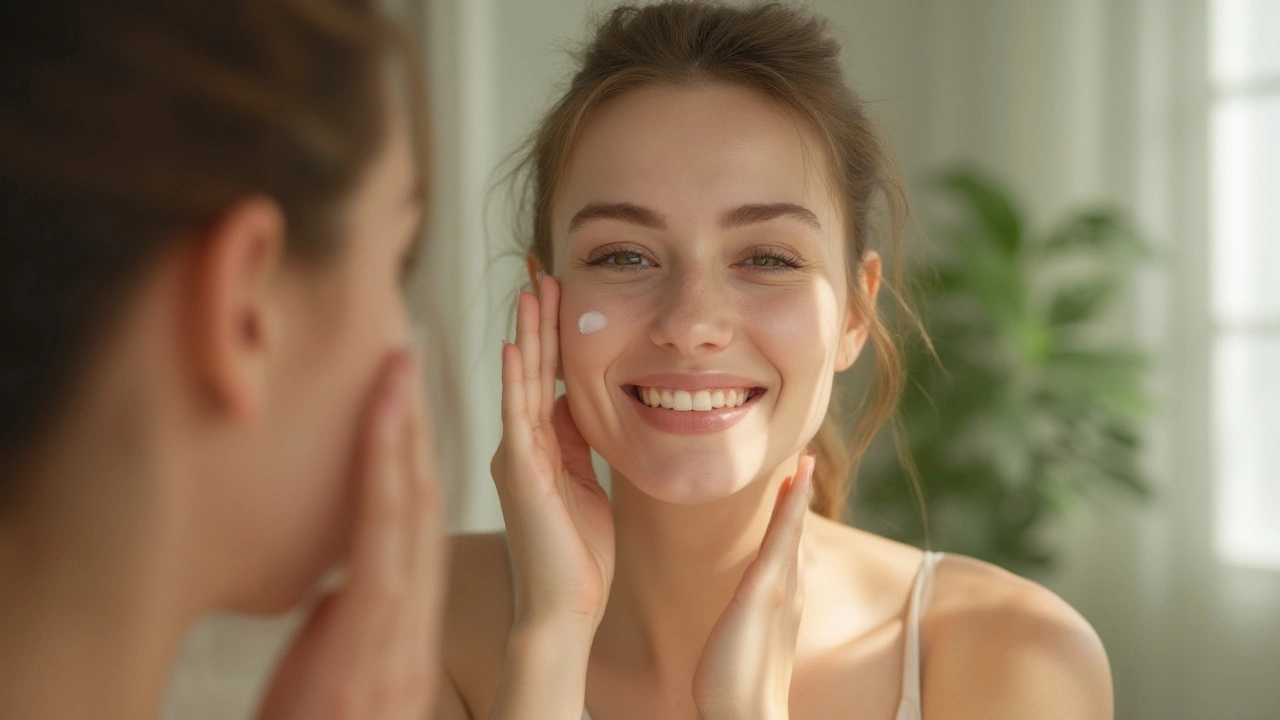Rosacea-Prone Skin: Honest Advice for Calmer, Healthier Skin
Dealing with rosacea-prone skin isn’t just about using gentle moisturizers or hoping for good days. Triggers are everywhere—sun, stress, spicy foods, even the wrong face wash can leave you red and rashy. Fast fixes rarely work, so knowing what actually helps (and what makes things worse) is key to keeping your face calm.
Ever gone outside on a sunny day, only to end up blotchy and burning by the evening? Sun exposure is like rocket fuel for rosacea flare-ups. Dermatologists recommend sticking to mineral sunscreens with zinc or titanium. These don’t just block UV—they’re less likely to sting or clog pores. If the damage is done, skip harsh aloe gels and menthol creams, and look for after-sun care with ingredients like niacinamide or panthenol—stuff proven to be soothing without causing more trouble.
But the sun isn’t your only foe. Hot showers, rough towels, wind, and even that daily coffee can set off redness. It’s not about cutting every joy out of your life but learning your skin’s language. Start a simple skin journal—note what you ate, how stressed you felt, and what products you used. Patterns start to show up fast, revealing personal triggers you might miss otherwise.
When redness hits hard, babying your skin counts. Cleanse with lukewarm water and mild, fragrance-free cleansers. Forget scrubs, peels, and anything with alcohol. Dermatologist-picked moisturizers (think barrier-repair formulas with ceramides or allantoin) can relieve irritation. If you’re trying a new product—even if it’s labeled “for sensitive skin”—test it first on your jaw or behind your ear. No need to risk a blow-up across your whole face.
Curious about treatments beyond skincare? Prescription topicals like metronidazole, azelaic acid, and ivermectin are commonly recommended for rosacea, but these aren’t stand-alone solutions. Sometimes, triggers like viruses or even certain blood pressure medications can sneak up on you. If you’ve tried everything over the counter with no luck, it’s worth asking a dermatologist whether your flare-ups have another medical root.
Even with the best strategy, rosacea can throw curveballs. Don’t get discouraged if one week is rough—the trick is consistent, gentle care and playing detective with your routine and triggers. Keep an eye on emerging treatments too. New data pops up every year, especially on light therapy and novel creams that target inflammation at the root level. Sometimes just swapping one ingredient or habit makes a world of difference.
For trusted product picks, expert-backed protocols for sudden flare-ups, or in-depth case studies where something finally worked, explore more guides here on PharmaInsight. Real solutions for real faces—no hype, just science and honest experience.
Top Mineral Sunscreens for Sensitive, Rosacea-Prone Skin: Ultimate SPF Guide
Discover the best mineral sunscreens for sensitive, rosacea-prone skin. Learn which formulas soothe redness, prevent flare-ups, and offer top sun protection.
Read more
